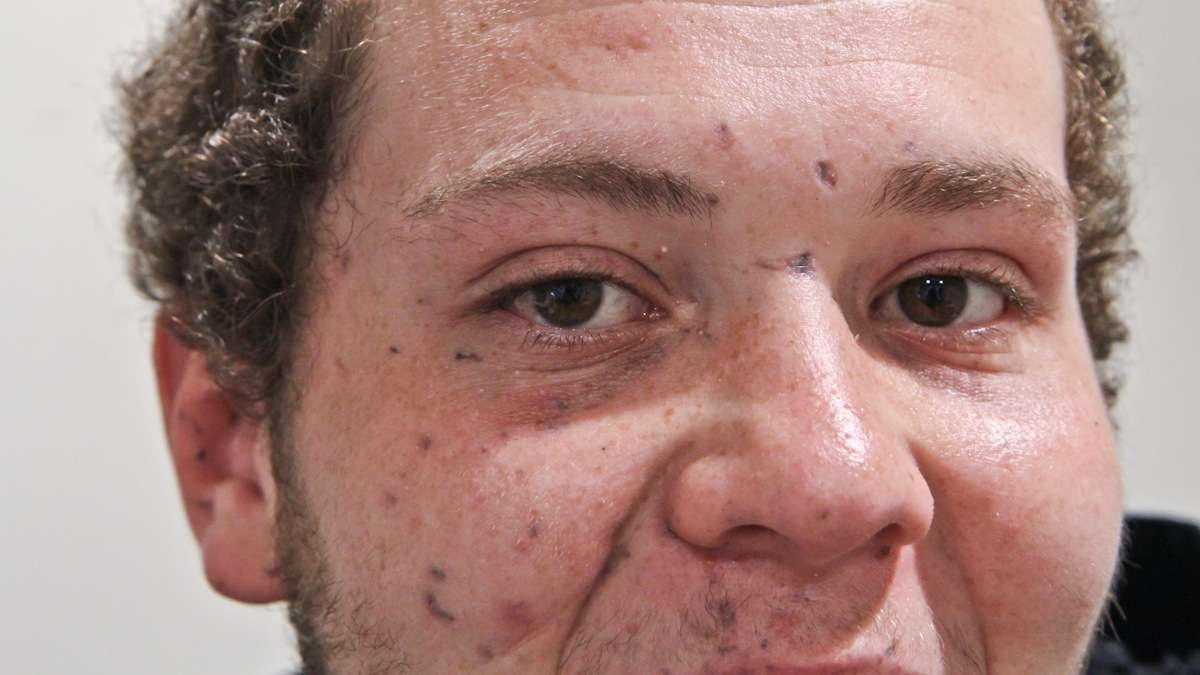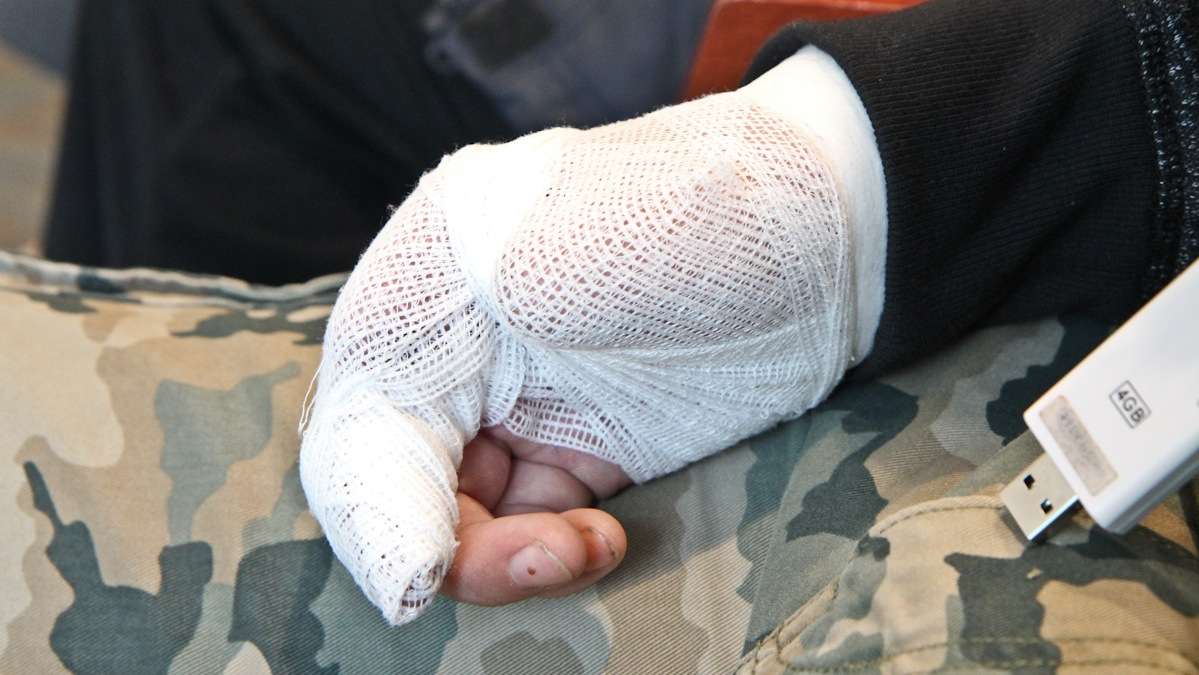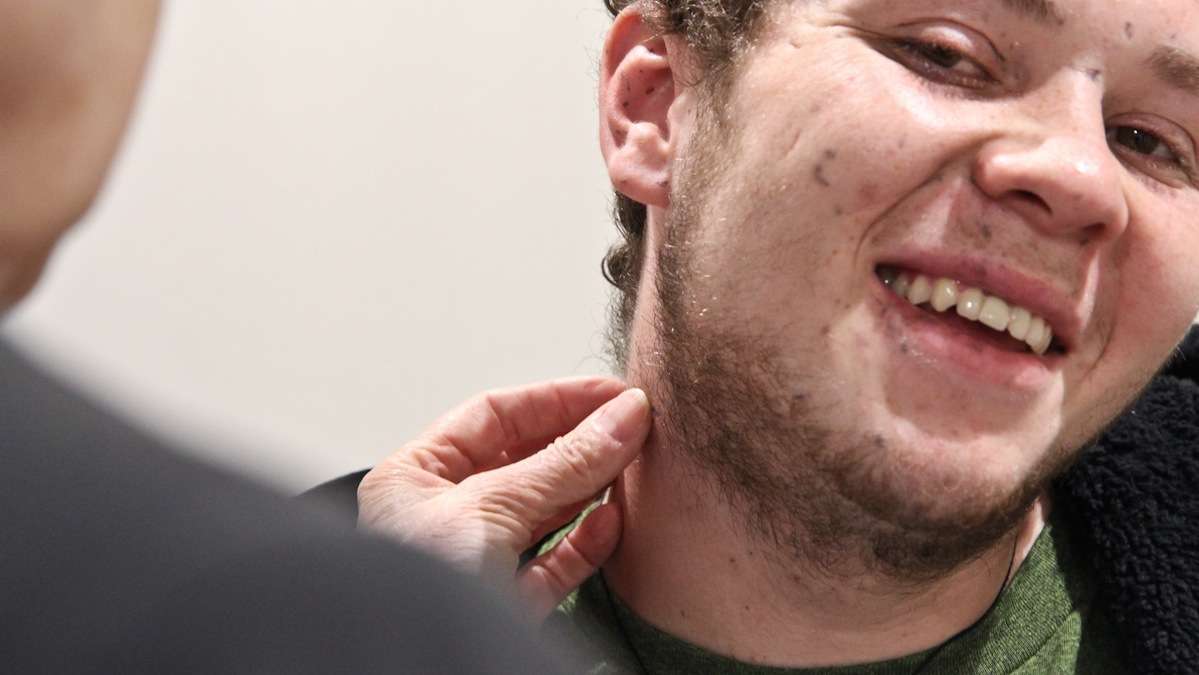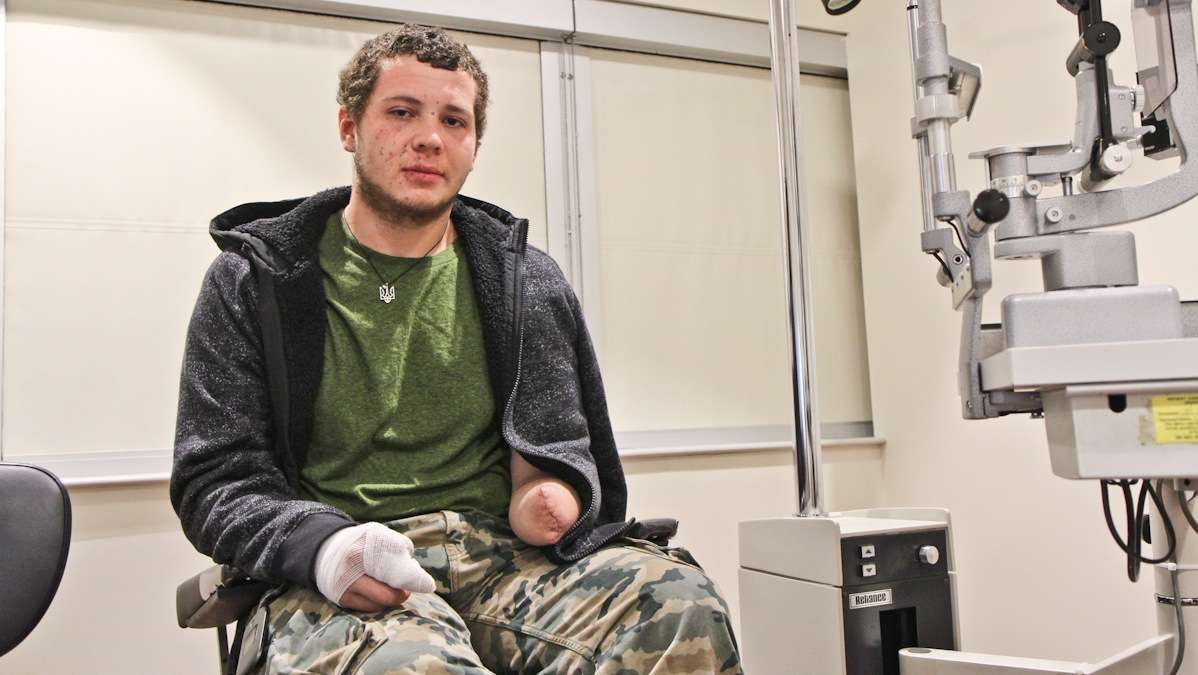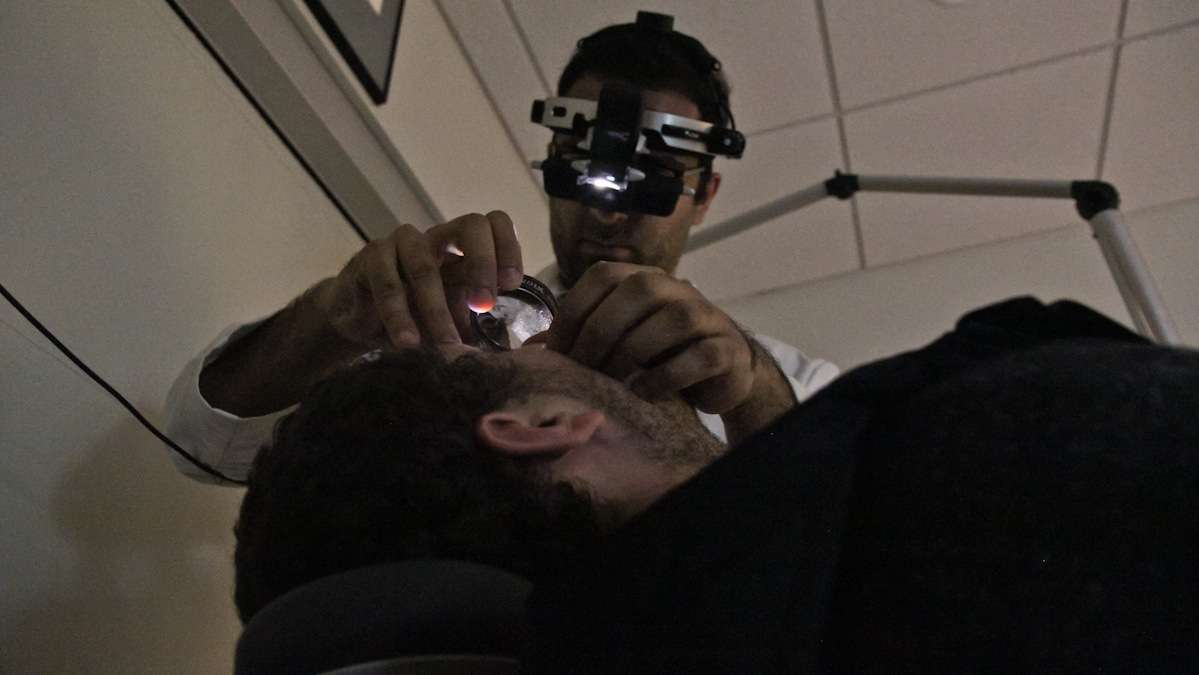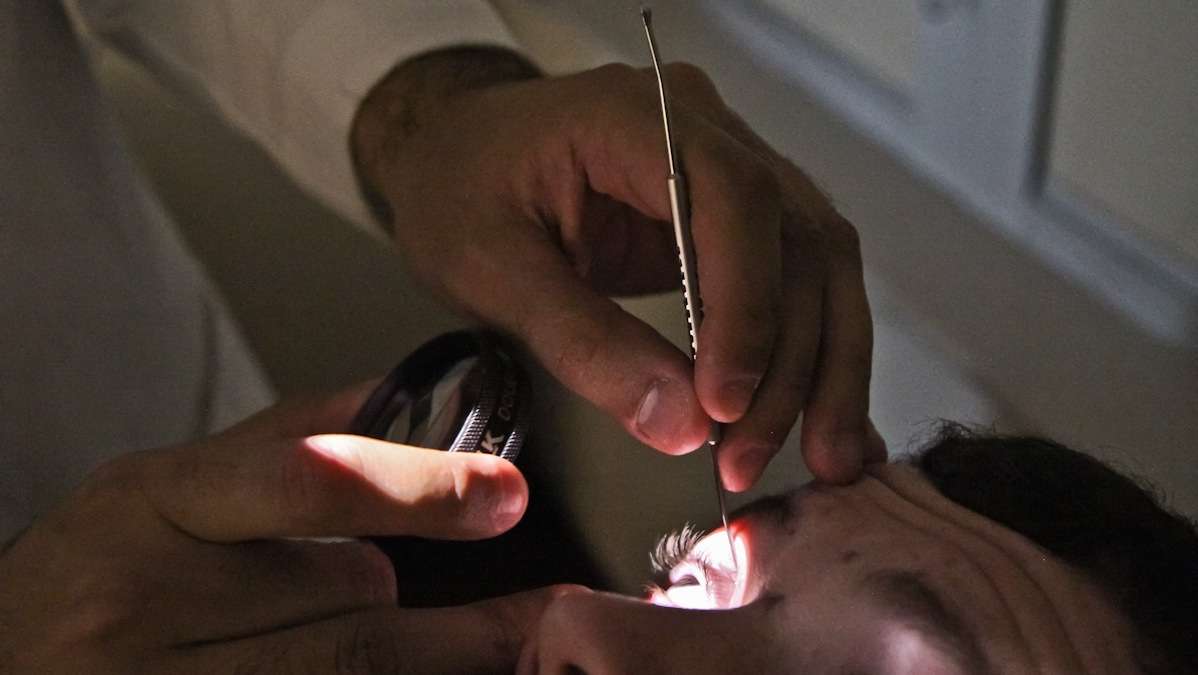Ukrainian doctor, wounded Kiev protester meet in Jenkintown
Ukrainian hospitals have been overwhelmed with patients needing intensive treatment since anti-government protesters became involved in violent clashes with military police.
A trickle of patients has started arriving in the U.S. for treatment. In fact, an international effort to treat Ukrainian patients is being organized through the Ukrainian Federation of American based in Jenkintown, Pa., outside Philadelphia.
Before the protests in Kiev, 21-year-old Roman Dzivinskyi was struggling to find work and had even briefly left his country to secure a job in Siberia. When he heard about unrest brewing and throngs of people gathering to protest government corruption in Kiev, he caught a bus to join them.
“When the bus was about 15-20 minutes away from the village, I called my mother and told her that I was on my way to Kiev. I did not want anyone to stop me,” he said in Ukrainian.
Dzivinskyi stayed on for weeks. The day he was hurt, he was unloading supplies at the protesters’ makeshift headquarters when someone handed him a box that looked as if it contained cigarettes.
“I remember opening the box but don’t remember when the box exploded,” he said. “Opening my eyes, I saw a lot of smoke and seeing a lot of people running around.”
He came to missing one of his hands and so in shock, he said, all he could think about was wanting a smoke.
It’s not clear what pro or anti-government faction planted the bomb. The explosion occurred Feb. 6, weeks before the rest of the world saw pictures of the rings of fire circling Maidan Square. But Zenia Chernyk had already been following the news closely.
Ukrainian identity a strong current
A doctor now in Pennsylvania, Chernyk lived in Ukraine for two years before her family moved to Poland. However, she grew up in an ex-pat culture, speaking Ukrainian at home, that makes her sympathetic to the Ukrainian protesters today.
“I think that most of Ukrainians who left Ukraine because of the Soviet regime were so conscious of their identity,” she noted.
With the Ukrainian Federation of America, she’s helped many protesters leave Ukraine for medical treatment.
“If you are American-Ukrainian, you feel obligation to help your countryman,” she said. “But if you’re a physician, then you know that it’s your duty to do that, because that’s what you went into this profession for, to help people.”
Dzivinskyi was the first of these patients she met in person. A few weeks ago, she escorted him to the suburban office of a specialist outside Philadelphia. In the waiting room, she explained Dzivinskyi is a good candidate for a prosthesis he can control from the nerves in his arm.
“Because he’s so young, we really are trying to bring him back to as functional a level as possible so he can work and lead a relatively functional life,” she said.
Working with other members of the Ukrainian diaspora, Chernyk is moving patients to hospitals in Europe, Israel and the U.S. that will treat them pro bono. For travel expenses and things such as Dzivinskyi’s expensive artificial hand, she’s raising money from other Ukrainians.
Months of physical therapy ahead
Dzivinskyi will spend several more months in the U.S. getting fitted for his prosthesis and continuing physical therapy. Even after the bomb blast, he said he doesn’t regret having boarded the bus for Kiev. But he’s disappointed with how the standoff in his country has escalated.
“We did not want war in Ukraine or Ukrainian people to fight amongst each other. We wanted Ukraine and its people to be united as one, to fight for the same cause, not to get divided into western parts, Crimean parts.”
Two weeks later, after surgery, the cast on his remaining, damaged hand had just been removed. He showed Chernyk how he can now lift a paper cup even though he is missing a thumb.
“He’s making a comment,” she explained. “That now he can hold a cup of coffee and enjoy a cup of coffee, which he was not able to do.”
But for each success, Chernyk said she has a spreadsheet with information on more than 60 more people requiring treatment. She wants to get to them out of Ukraine quickly, to be ready for more patients if fighting escalates.
WHYY is your source for fact-based, in-depth journalism and information. As a nonprofit organization, we rely on financial support from readers like you. Please give today.


